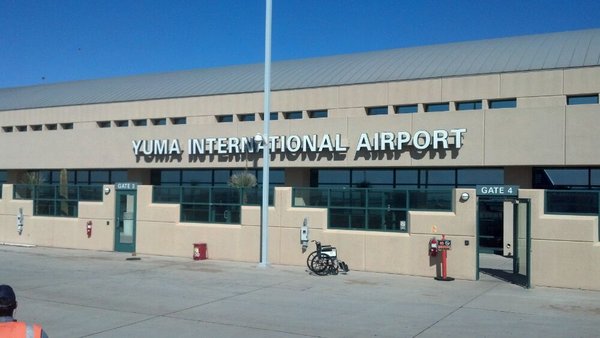1.1 million to be invested to improve accessibility to Yuma airport

YUMA, AZ – A total of $1.1 million will be invested to improve accessibility, safety and efficiency at Yuma International Airport from the bipartisan Infrastructure Investment and Jobs Act.
The investment was distributed through the FY 2023 Airport Terminal Program, which was created through the bipartisan infrastructure bill pushed by Senators Kyrsten Sinema and Mark Kelly.
“Our bipartisan infrastructure bill continues to make Arizona a stronger and safer place. The investment in Yuma International Airport will improve the passenger experience, streamline airport operations and promote public safety for Arizonans who work and travel there, while boosting Yuma’s economy,” Sinema said.
“We are pleased to have helped secure this investment for Yuma International Airport through the Bipartisan Infrastructure Act that will strengthen passenger safety, boost economic growth in the region and create good-paying jobs,” Kelly commented.
The $1.1 million investment upgrades 20-year-old pavement and eliminates existing transitions between different types of flooring to address current workplace safety and American Disability Act issues for both commuters and employees.
The Infrastructure Investment and Jobs Act includes a historic $25 billion in additional aviation infrastructure investment; it also provides $15 billion in priority projects at all U.S. airports, $5 billion in competitive grants for terminal development and other landing projects, and an additional $5 billion to strengthen air traffic control towers and infrastructure.
In the year since enactment of the bipartisan law, more than $69 million has been allocated for repairs and improvements at all Arizona airports.
The bipartisan infrastructure bill received support from groups such as the U.S. Chamber of Commerce, the Business Roundtable, the National Association of Manufacturers, the AFL-CIO, the National Retail Federation, the Bipartisan Policy Center, the North American Building Trades Unions, the Outdoor Industry Association, the American Hotel and Lodging Association, the National Education Association, as well as hundreds of mayors from all 50 states.